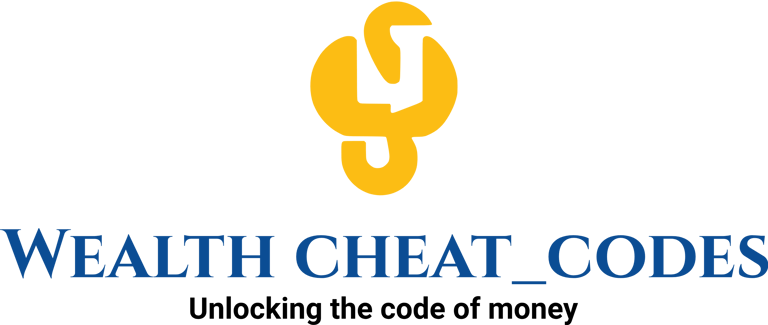
Forex Broker Regulations in the U.S.
Learn more about Forex trading regulations in the U.S. in our easy-to-understand blog post. Find out how rules keep you safe and start trading confidently. Read it now!


Forex trading is a viable choice for almost everyone, and it appeals to many people due to its ease of entry and the promise of quick earnings. Customers can register with an online broker, deposit funds, and start trading.
However, for the broker, it is more complicated than simply offering a variety of foreign exchange pairs to trade. Numerous countries have enacted strong online forex broker rules to ensure that organizations based inside their legal jurisdiction meet official criteria, allowing individuals to trade safely with them.
Although you may believe that the foreign exchange industry is unregulated, forex market regulation measures do exist to protect retail forex investors. These rules assist in keeping online forex brokers honest and safeguard inexperienced traders from the dangers of dealing with an unregulated broker.
Do Forex Brokers Need to be Regulated?
A properly regulated forex broker will normally be subject to all government rules and official scrutiny that are legally required for them to operate in their different regions. This guarantees that they follow any rules and ethical standards established by governments or regulatory authorities.
Although the interbank forex market is mostly unregulated, regulation of the retail forex business establishes a system of checks to ensure the online forex market remains secure for individual traders. These checks include a set of legal and ethical criteria that apply to forex brokers headquartered in a specific country or region, as well as close supervision of the broker by official regulators or watchdogs. Securities regulations can be very precise, which makes regulatory compliance difficult and telling. If the federal government enables you to continue functioning, you've aligned with public policy to stay in business.
What exactly does this mean? It signifies that asset management is managed appropriately and that the firm can comply with federal rules. If they can stay legal, they’re doing something right.
Any reputable online forex broker worth sending your margin deposit to should be regulated to safeguard you from fraud. If you choose an unregulated forex broker, you risk losing your entire deposit with few legal options if the broker turns out to be a forex scammer.
Because many online forex brokers are unregulated and lack an official organization to supervise their operations and sanction them for violations, entrusting them with your trading cash can end in a total loss.
Forex traders must ensure that any broker they are considering doing business with is regulated, either in their home country or in another jurisdiction where the broker is subject to severe regulatory scrutiny. In short, opening an account with an unregulated forex broker is a bad idea, especially if you are very risk-averse.


How Do US Authorities Regulate Forex Brokers?
Source: beoforex.com
If you want to trade forex in the United States, you should first grasp how US authorities regulate online forex brokers and how they can protect retail forex traders. The two major regulatory agencies that monitor forex brokers in the United States are listed and detailed below.
A regulatory organization collaborates directly with businesses to collect data and assess consumer laws against the facts discovered. Yes, you can perform a technical analysis and open multiple accounts like a financial counselor, but is this the best situation for your money?
Commodities Futures Trade Commission (CFTC)
Founded in 1974, the CFTC is an independent federal agency in the United States. The CFTC was established to regulate all derivative markets, such as futures, swaps, and some options. It is now responsible for overseeing online forex brokers.
The Commodities Futures Trade Commission safeguards the public from fraud, manipulation, and abusive behavior in a variety of transactions. To safeguard the American people, the agency investigates and prosecutes fraud that occurs within its jurisdiction.
Furthermore, the CFTC's regulatory control of the derivatives and online forex markets promotes competition, efficiency, and confidence by ensuring market participants' integrity, such as online forex brokers.


Source: cftc.gov
National Futures Association (NFA)
The National Futures Association is an independent self-regulatory body established by the CFTC to regulate the US futures, derivatives, and online FX trading markets. The NFA is a licensed futures association dedicated to maintaining the integrity of these unique assets and the online FX market.
The principal source of funding for the NFA is dues and fees paid by market participants. This authority protects individual traders by requiring online forex brokers who allow US consumers to follow its tight guidelines.
NFA members must satisfy their commitments to the regulator. Any failure to follow its regulations may result in fines or even membership revocation, thereby prohibiting an online forex broker from continuing to do business with the United States.


Source: wiki-forex.com
How US Regulations Differ
The United States has a clear forex broker regulation structure in place to protect large enterprises and businesses, as well as small individual forex traders. An online forex broker must take care to check all critical information about a client, such as who owns the trading account and where they live.
However, most online forex brokers are headquartered outside the United States, so you need to be sure they are permitted and monitored by their country’s regulator to conduct business as an online forex broker. Even if the broker is regulated in their home nation, this does not imply that they are authorized to take clients from the United States.
If you are concerned about the regulatory requirements for online forex brokers operating in the United States, you can review the relevant regulations covering maximum leverage ratios, how deposits are maintained, and other types of retail trader protections that differ by country.
To be safe as a U.S. trader, be sure any online forex broker you deal with is properly authorized by the CFTC and the NFA and has good standing with those organizations.
Foreign Regulatory Bodies to be Aware of
If you want to trade forex with an online broker based in another country or region, here are some trustworthy foreign regulatory agencies to check into:
The Financial Conduct Authority (FCA) oversees online forex brokers in the United Kingdom. in addition to banks, financial planners, and other financial intermediaries. It is a tough and highly regarded regulatory institution.


Source: aspiringtoinclude.com
The Cyprus Securities and Exchange Commission (CySEC) is Cyprus's financial regulatory organization in the European Union. While this is not a major regulator, it does enforce all financial regulations and ensures that Cyprus-based online forex brokers follow the EU's MiFID II financial harmonization standards. Online forex brokers registered in Cyprus have access to all European markets and can accept clients from all across the EU.


Source: agplaw.com
The Australian Securities and Investments Commission (ASIC) is an independent Australian government commission that oversees all financial industry firms. As a stringent regulator of online forex brokers operating in Australia, it enforces rules to safeguard Australian forex traders.


Source: financemagnates.com
How Can I Verify Whether a Broker is Regulated?
Setting up a margin account with a strictly regulated broker is the most secure approach to begin trading FX online. It may appear tough to identify which brokers are regulated and which are not. Here are some ideas to assist you in determining whether an online forex broker is properly regulated.
Research
To find out more about a broker, start with a basic web search. This will provide current bad reports, media source articles, disciplinary proceedings, or negative reviews to assist you in determining whether the online forex broker is reliable and trustworthy. Financial institutions operating in large jurisdictions are normally required to register with and be regulated by the proper regulator. This information will be made public, so visit the regulator's website.


Ask Questions
Whichever forex broker you choose should be trustworthy, and you should be able to ask them questions and express any concerns you may have. Make sure to learn about the company's currency trading services, the organization that regulates it, and how long it has been in operation.
Establishing a positive relationship with your broker will help you relax and focus on trading profitably. A broker's customer care representatives should be able to provide information on where they are regulated and by whom.


Check Account Regularly
If you have already registered a trading account with an online forex broker, make sure to check your account and balance regularly to spot any errors or unplanned deductions. Not reviewing your account regularly may cause such problems to worsen, so contact your broker right once to rectify them. If you discover such abnormalities, your broker may not be regulated, thus you should consider terminating your account and looking for a new broker.


Websites
Researching recent news or reviews regarding a broker you are unfamiliar with can help put your mind at ease. You can also look at an online forex broker's specific regulatory environment, licensing, and whether it is still in good standing. That information is best found on the website of the broker's principal forex regulation.


